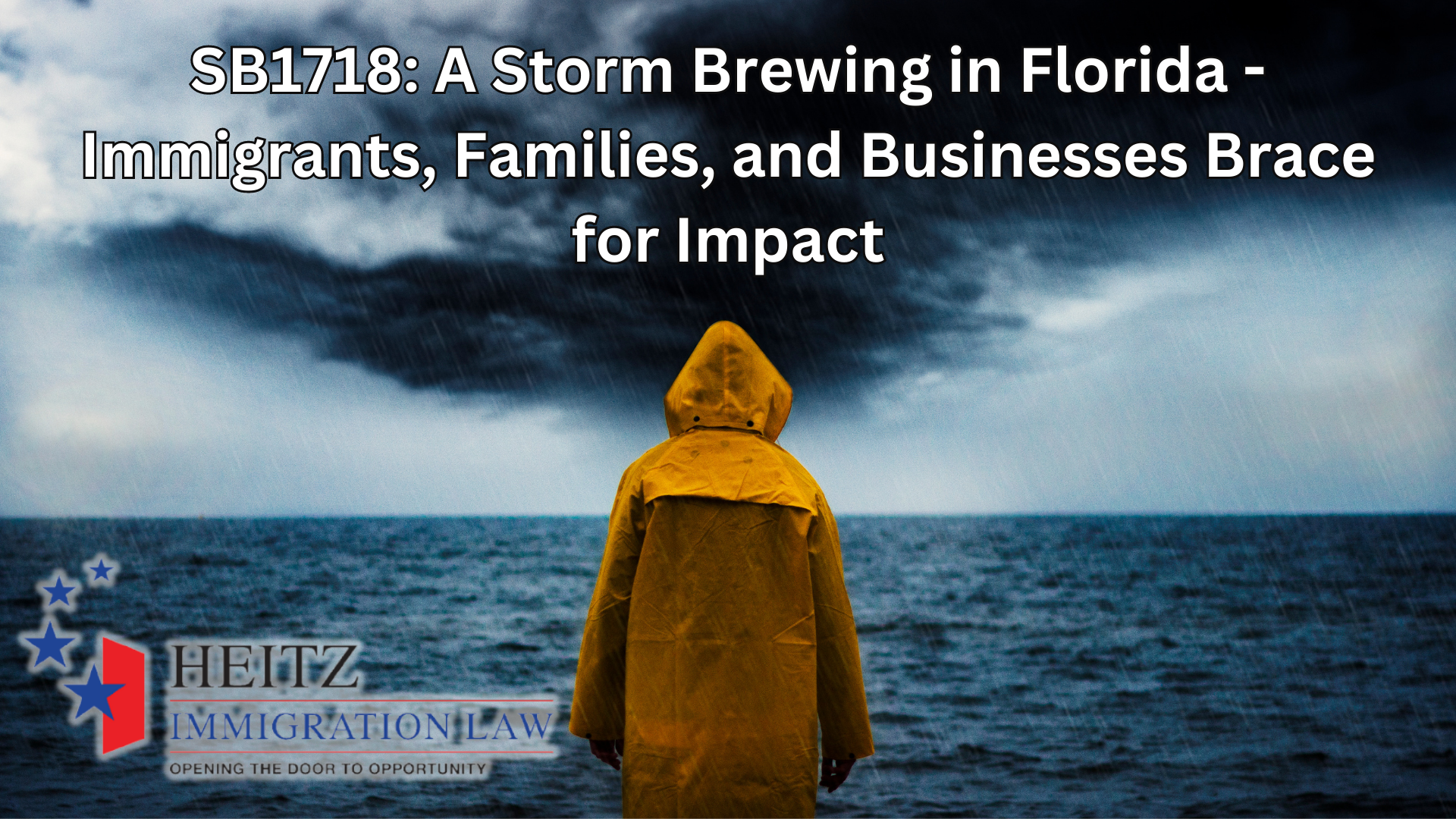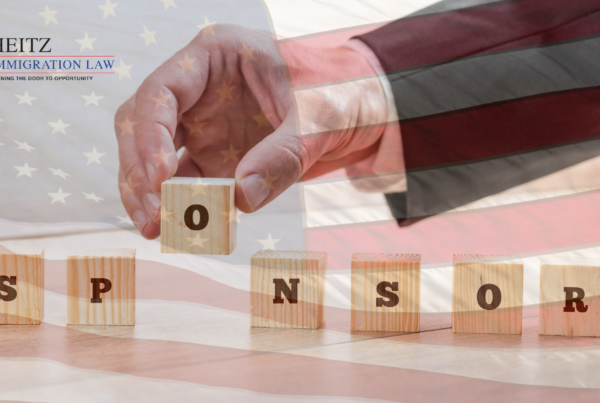The Florida governor has just signed into law bill SB1718, a bill that has stirred significant controversy in Florida. Of particular concern is the uncertainty surrounding its enforcement and the potential impact on various aspects of individuals’ lives. There is a lot of misleading information and many are not clear on individual’s rights when encountering law enforcement and ICE. Even something as important as going to the hospital is now unclear with the healthcare provisions embedded within the bill. I will attempt to navigate through the complexities of SB1718 and strive to understand its far-reaching consequences for immigrants, families, and communities across the state.
Human Smuggling:
The enforcement details of SB1718 in Florida remain uncertain at this stage, as the passed version differs from the original bill. The Southern Poverty Law Center (SPLC) anticipates that enforcement related to “human smuggling” outlined in Section 10, pertaining to the transportation of individuals who entered without inspection (EWI) or are unlawfully present, will primarily occur at the state border. Notably, the section now focuses on transport into the state, whereas the initial draft encompassed transport within the state, concealment, and harboring. We anticipate that this means that a bus driver or Uber drive would not be required to ask their passengers what their legal status is in the USA! Imagine a US citizen giving their neighbor a lift to the grocery store, only to find out they have committed a crime by transporting someone who does not have legal status! That was the fear when this bill first was launched, but thankully, that language has changed to only focus on transportation INTO the state.
Healthcare:
Hospitals that receive federal and state Medicaid reimbursements will now be required to track and report when they serve immigrants who do not have any legal status. Regarding these healthcare provisions, it is advisable for everyone to refrain from disclosing their immigration status. We strongly encourage individuals, regardless of their status, to decline to answer questions about their immigration status as it is voluntary. Importantly, healthcare providers cannot deny care based on non-disclosure. We do believe this will unfortunately deter certain individuals from seeking health care, which negatively impacts the entire community.
Drivers Licenses:
Prior to the passing of this bill, immigrants in Florida who qualify for a green card or certain other immigration benefits can get a Florida ID or driver’s license when they prove this to the DMV. Will this continue? Well, the DMV refuses to tell us exactly what their plan is! But we can assume that it will now become much more difficult to obtain a driver’s license if you do not already have a valid social security card. Contrary to information provided by the governor’s office, non-governmental organizations (NGOs) can still issue community IDs; however, they must secure private funding as they are no longer allowed to receive funding from localities. This development affects counties such as Miami, Broward, Palm Beach, and Alachua, which were previously supporting such programs. We cannot anticipate yet what impact this will have in Palm Beach County. We do know that if an immigrant without legal status in Florida has a driver’s license from another state that was legally obtained (many states do offer licenses in this situation), they will be banned from using that license in Florida under this new bill.
Employment:
This will hit employers hard because the federal E-verify system has previously applied only to public employers and contractors, but with this new bill, all companies with 25 or more employees must use E-Verify to ensure the employment eligibility of their workers. Employers that fail to comply could lose their operating licenses. In addition, the legislation allows for random audits of companies suspected of employing undocumented workers. This may have a devastating effect on businesses that rely on unskilled labor.
Your Rights:
In light of these circumstances, informing individuals about their rights is crucial when encountering law enforcement agencies and Immigration and Customs Enforcement (ICE). Our clients should be aware that they are not obligated to disclose their immigration status. Law enforcement authorities require probable cause to make an arrest; if the detention is intended, it may occur regardless. As SB1718 unfolds, understanding these nuances becomes essential in safeguarding rights and navigating the implications of this controversial bill in Florida.
(AILA) American Immigration Lawyers Association comments:
AILA President Jeremy McKinney and Executive Director Benjamin Johnson have strongly criticized SB1718. McKinney describes the law as detrimental to the state’s future, stating that it will discourage people from seeking urgent medical care and compromise road safety. He also believes it will separate families and impede the ability of houses of worship to serve their congregations. McKinney draws parallels between SB1718 and similar laws passed in Texas and Arizona, which were ultimately defeated in court. He predicts a similar outcome for this bill.
Johnson echoes McKinney’s concerns, emphasizing that SB1718 will have far-reaching negative consequences for the state. He argues that the bill’s broad and discriminatory measures will impact all Floridians financially. The provisions targeting businesses and healthcare providers will worsen the state’s economic and social well-being, making it a less attractive place to live and conduct business. Johnson points out that a significant portion of Florida’s population is foreign-born, underscoring the wide-ranging impact of the legislation.
Both McKinney and Johnson criticize the governor and lawmakers for what they perceive as a deliberate attempt to undermine the state’s success. They believe that rather than pursuing responsible lawmaking, the bill reflects political motivations. Johnson states, “In what world would a governor and lawmakers intentionally undermine a state’s success? It feels like a political play rather than sober lawmaking.”
The Future, What Do We Do?
We do anticipate that there will be challenges to this bill. Just as those laws in Texas and Arizona were challenged in court and defeated, we expect the same result here in Florida. So everyone, please do not panic, do not make rash decisions, consult with an attorney if you are unsure of your rights, and stay safe and healthy.









